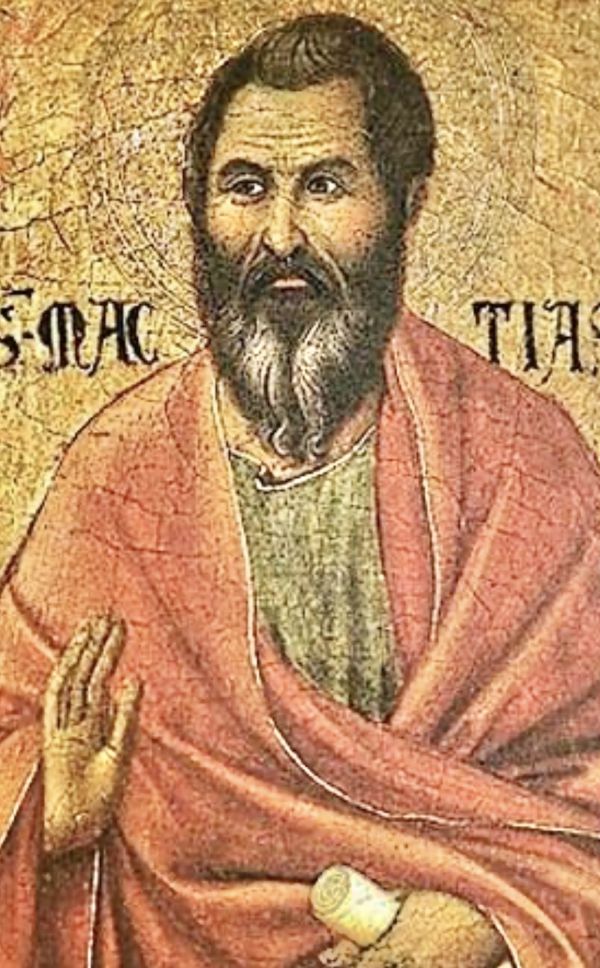(Jn 15:9-17)
Jesus has just used the image of the 'vineyard' to configure the character of the new people and the 'circulation of life' with those who believe in Him.
The allegory of the vine and the branches is now translated into existential terms.
The propagation of divine dynamism in us initiates a current and communication of love. Movement of authentic love: which Comes.
It is an uninterrupted Flow of resemblances of the divine condition.
Transparent Syntony with generative value, brought by the Son: «as» and «for the reason that» [I have loved you] (v.12 Greek text).
The Lord does not ask to “be loved” [from ourselves, we would not be trustworthy], but to 'receive' God's way - the Gift that descends from the Father and from Him.
The Joy that springs forth from this will not be one of euphoria or exaltation: it is the fruit of an awareness that combines the divine proposal of 'non-possessive resemblance' with our capacity to make space within.
And in that gap, meeting our deepest sides - not detaching ourselves from the Core, to become external.
Abiding in the Father-Son circulation of love, we are enveloped by a personal Happiness.
It intuits the meaning and uniqueness of our 'seed' and effortlessly changes the way we see life, suffering, relationships, and Joy.
«Greater love hath no man than this, that one lay down his life for his friends» (v.13).
Difference between religiosity and Faith? Friendship, which is stronger than both cerebral alchemy and voluntarism.
The Friend shares intentions, cultivates communion of life.
The «servant» (v.15) remains untrustworthy and resentful, because he is a mere executor of others' orders - which do not concern the irreducible hidden 'roots', the Source from which the heart draws and which belongs to him (v.16).
So the trustworthy Friend is glad not only when he fulfils himself, but also when he can expand and brighten the life of his beloved. He willingly ousts himself from the first seat in favour of the beloved.
Jn does not speak of love of enemies as Mt 5 does in the Sermon on the Mount, but insists on mutual love [inner community of believers] as a relationship with the divine life itself.
Here we see a particular concern for individuals and the climate between friends of Faith, who must first themselves overthrow positions of privilege - and embody the spirit of selflessness and truth that they preach to others.
In this way, the Lord does not ask us for “fruits” [multiple external works, often tinged with exhibitionism] but for 'one' single work: Love without duplicity, qualms, forcing, dissociation.
In the unique and unprecedented personalisation of the «Fruit» (v.16), Christ does not remain a Model to be imitated, but a real Life that continues in us.
Unique tiger in the engine; inviting and accommodating within the mystery of the founding Eros, which dilates the I into the Thou:
In Friendship, in the opposing feelings that surface, in the growing unity of thought and aspiration; in the people everyone approaches, in the communion of desire and circumstance... the wills unite.
In such divine-human Empathy [more persuasive than voluntarism] the codes of conduct, or the extrinsic, conditioned project, to which they (first) bow, now weave a dialogue; finally they make team - by Name.
Here is the kindling and pouring out of Communion, on a high ground of understanding; without concealed conflicts. With a broad mind, which overcomes the obsession of discomforts and comparisons.
With amniotic mind, capable of giving birth to novelty without servitude.
In short, in the Ideal as in the Dream we prefer Friendship.
And we walk the Way of Faith in the Crucified One - that of the authentic and happy «Fruit»: of the 'snub and imbalance of love'.
[St Matthias, May 14]












